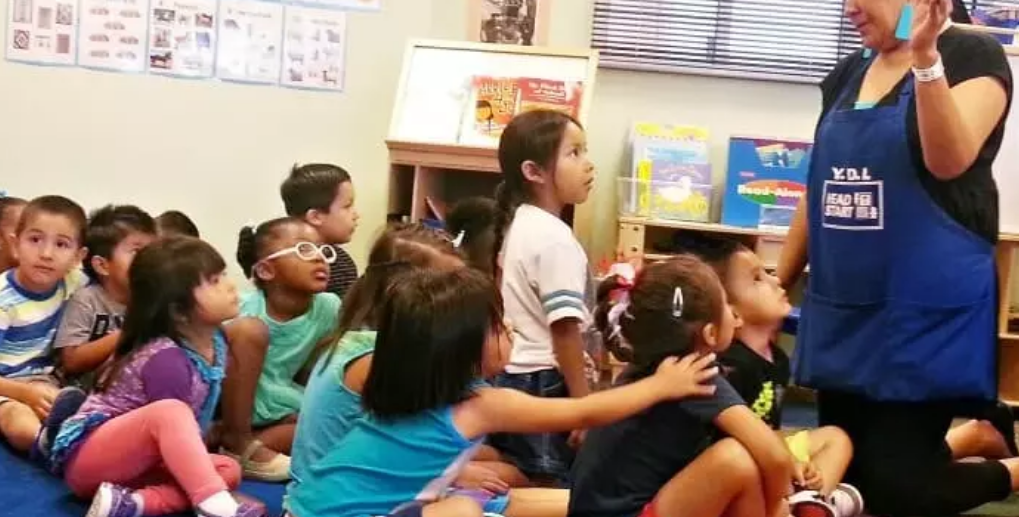
- Details
- By Native News Online Staff
DENVER — The American Indian College Fund received a two-year, $600,000 grant from The W.K. Kellogg Foundation, to help tribal college communities strengthen and expand the pipeline for Native teachers through its Indigenous Early Childhood Education Systemic Engagement and ECE Learning in Native American Communities program.
Early childhood education can help close the college education attainment gap among American Indians and Alaska Natives—which is currently less than half of other groups at 14.8 percent—by improving students’ academic achievement, according to the U.S. Department of Education.
Indigenous teachers serve as critical role models engendering the success of young Native American students, while understanding the unique needs of their students. In addition to improving young children’s long-term educational attainment, early childhood education can also reduce the need for special education and increase employment and earnings, according to the U.S. Department of Education.
The American Indian College Fund’s two-year systemic engagement program will provide program mentorship between tribal colleges and universities (TCUs) and their students and will help increase TCUs’ capacity to address and eliminate barriers for Native American college students seeking a degree in early childhood education. The systemic engagement program will support dissemination of new knowledge and methods of culturally centered early childhood education in tribal college communities.
“Native people know that our children come to us from a sacred place and that their socialization is critical to their own well-being and to the well-being of tribal nations. We appreciate our partnership with The W.K. Kellogg Foundation because it results in our TCUs adapting our teachings and practices into modern infrastructure, demonstrating resiliency and commitment to kinship and identity,” Cheryl Crazy Bull, President and CEO of the American Indian College Fund said,
The program is already underway. It began November 1, 2020.
More Stories Like This
Hanging a Red Dress for Christmas: MMIP, Native Higher Education, and Hope for a Better New YearNative Students Can Win $5,000 Scholarship, International Distribution in Pendleton Design Contest
American Indian College Fund Raises Alarm Over Plan to Shift Native Programs Away From the Dept. of Education
MacKenzie Scott Foundation Gives $5 Million Contribution to Little Priest Tribal College
Tribal Leaders Push Back on Dismantling of U.S. Department of Education
Help us defend tribal sovereignty.
At Native News Online, our mission is rooted in telling the stories that strengthen sovereignty and uplift Indigenous voices — not just at year’s end, but every single day.
Because of your generosity last year, we were able to keep our reporters on the ground in tribal communities, at national gatherings and in the halls of Congress — covering the issues that matter most to Indian Country: sovereignty, culture, education, health and economic opportunity.
That support sustained us through a tough year in 2025. Now, as we look to the year ahead, we need your help right now to ensure warrior journalism remains strong — reporting that defends tribal sovereignty, amplifies Native truth, and holds power accountable.
 The stakes couldn't be higher. Your support keeps Native voices heard, Native stories told and Native sovereignty defended.
The stakes couldn't be higher. Your support keeps Native voices heard, Native stories told and Native sovereignty defended.
Stand with Warrior Journalism today.
Levi Rickert (Potawatomi), Editor & Publisher

